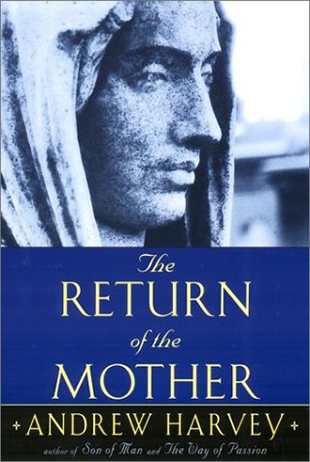"Through Ramakrishna, I believe, the Mother is giving us three essential linked messages of adoration.
"First, the Mother is saying to us, 'Adore me. See me in my grandeur, nobility, majesty, and wildness, and adore me. Go mad with love for me.' This is the first message the Mother is giving us — to turn to her, the Mother-aspect of God, and reimagine her in the ecstasy of adoration.
"The second message is: 'Adore each creature, each being, as part of me.' Ramakrishna was wildly in love with the created world. When he went to the zoo, he couldn't get past the lions — just at the sight of them he went into samadhi. One day when he went out to pick flowers, he suddenly saw that all the white flowers were bouquets laid upon Shiva's head and so he couldn't pick them. On another day, he had just picked a flower and a bit of bark came off the tree, and he saw that the tree was pure consciousness and he wept. He could never pick flowers again, because he realized that everything was sentient. Another day, he looked at two dogs copulating in a puddle, and he went into a transcendent vision of Shiva-Shakti creating the entire cosmos out of their lovemaking. So you see that the creation was for Ramakrishna nothing but glory and light, and the play of the Mother.
"So the second message of the Mother us: 'Adore each being, each object in the universe, as me, as totally sacred, as brimming with consciousness and light; experience each being, each object, as sacred and walk in my glory wherever you are. Know that wherever you are, whatever is happening, I am there, and I am you and you are me.' This vision of the cosmos as brimming with her sacred glory, is the one that we need more than anything else at this moment. We are in danger of destroying the entire planet, because we do not see that the trees we are cutting down, the oceans we are polluting, the creatures we are massacring, are all glorious, light-filled manifestations of her great love, and parts of our cosmic being in her.
"The third message of adoration, after 'Adore me, the Divine Mother' and 'Adore each being as me,' is the most difficult of all, I think, to put into practice. The most difficult, most demanding, and most challenging of her messages to us is: 'Adore yourself humbly as my child. Through that humble adoration a recognition of your self and your consciousness as being my self and my divine consciousness will arise, and with it a recognition that everyone else exists also in that sacred truth.'
"Ramakrishna again and again talked of the wonder of having such amazing senses that could be so completely tuned to reality; of the wonder of having a heart in which the Mother could dance; of the wonder of being able to say the sacred names of God, raising in the spine the sacred energy of the kundalini so that it would come through all the different chakras and illuminate the entire being. He spoke of the wonder of being in a body in her great play and of being able to appreciate all the nuances, all the dazzling excitement, all the wonders, all the ecstasies of being able, as Ramakrishna was able, to go through everything and house everything in one small human frame.
"With his life, Ramakrishna is saying: Come to the Mother's feast of love, come with your heart open to the Mother's ecstasy, her bliss, her unconditional, infinite love. Then, when you're at the feast, get down on your knees to every other being there, and spend your time serving every other being. Not for some social program, not in the name of Karl Marx or sociology, but just for the pure joy of serving other manifestations of the Mother like yourself, other completely sacred beings in need.
"It is a complete philosophy, a direct teaching from the mind of the Mother. It is a teaching that can save the world, if only we all of us have the divine courage to live it out. As Ramakrishna said, 'If you meditate on an ideal you will acquire its nature. If you think of God day and night you will acquire the nature of God.' And from that 'new' nature you will act in the world to preserve the world, in her, as her, for her, so that her heaven-on-earth can be known, lived and increasingly embodied.”
Back to reading a full review of this book.
